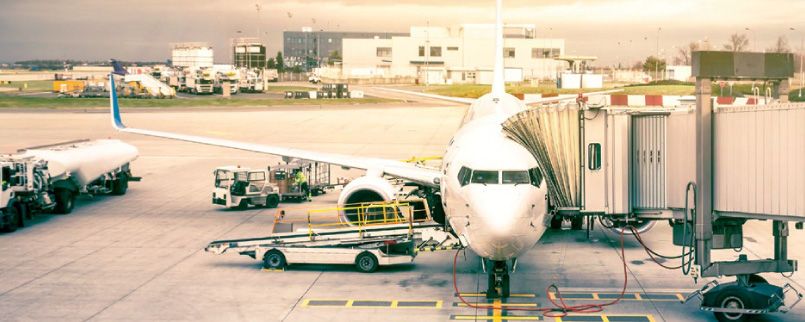
What is an Airport Billing System?
Airport Billing, in other words, Commercial Management System (CMS), is a standalone commercial management application that is particularly developed for airports’ needs and workflows. Supporting the revenue enhancement process, the system is designed to reduce revenue leakages in airports. It offers an automated structure to manage tariff requirements and the billing process.
Benefits of Airport Billing System
Airport Billing System successfully eliminates human mistakes using automated systems and provides a smooth data entrance. It automatically calculates the fees both for aeronautical and non-aeronautical revenue generation.
TAV Technologies Commercial Management System
TAV Technologies Commercial Management System (CMS) calculates both aeronautical and non-aeronautical service usage accurately by correlating operational data with invoice data. CMS offers extensive flexibility in tariff management and data consistency across systems by allowing airport management to generate accurate invoices without manual errors.
The system accepts various configurations, including
- service definitions,
- unit of measurement
- metrics
- tariffs
- billing periods
- currencies
- discounts
- surcharges
- base knowledge parameters such as IATA/ICAO codes
- aircraft types
- registrations
- airport resources
Benefits of TAV Technologies Commercial Management System
Flexibility
Limitless customizable and configurable options for Tariff Management, which covers both aeronautical and non-aeronautical services.
Enhanced Revenue Management
TAV Technologies CMS is a perfect tool to control both aeronautical and non-aeronautical revenue at the same time, with special features designed for various needs.
Aligned with Local Authorities
Easily adaptable to local financial rules, taxes, and regulations
Multi Airport Management
Management of multiple airports with a single system is possible with TAV Technologies CMS.
Time Saver
It automatically triggers billing processes on any ERP system, hereby it shortens the time needed for invoicing. CMS also works aligned with all financial ERP systems.
Decreased Workload
Additional workload is prevented for operation and finance employees due to decreased levels of manual transactions.
Key Features of TAV Technologies Commercial Management System
- Automatic Aeronautical and Non-aeronautical revenue management
- Extensive integration with airport, airline, and ground handling systems
- Flight service data collection and usage management
- Flexible contract, tariff, and discount management
- Revenue calculation based on numerous metrics
- Data consistency and quality check
- Contract and document management
- Rental unit and usage management
- Sales data management with point-of-sale (POS) integration capability
- Integration capability with well-known ERP systems
- Customizable dashboards
- Alerts and notification
- Multi-language support
- Advanced authorization
TAV Technologies Commercial Management System Modules
1. Aeronautical Module
The aeronautical module covers commercial transactions of flight-related issues. It is mostly related to the payment calculation for the services offered to the airlines.
1.1 Flight Service Management
This feature helps to determine all the details about a flight, such as plane type, flight date, and route. Flight service management feature is beneficial for airport operators to manage flight services that are offered for planes, such as boarding bridge, electricity, air conditioning, and water supply.
- Flexible service rule definitions assist airport employees to define a specific rule for each flight to know the flight services beforehand.
- The actual information is recorded within the system when a flight is completed. The information is automatically sent to the commercial system on a periodical basis with an auto-send configuration feature, eliminating manual operations.
- The commercial-ready conditions feature controls the service usages and calculations before generating an invoice.
1.2 Commercial Usage Management
Flight service usages become financial data within commercial usage management. Service usages are calculated in line with the service price list and various criteria.
2. Tariff Management Module
Financial data is generated according to the rule engine, such as revenue code, customer, currency, exchange rate, and payment type. Operational and financial data are combined to calculate the revenue within the tariff management module. The system automatically calculates the revenue in parallel with tariffs, and the calculated amount is transferred to the ERP system for invoice generation.
3. Non-Aeronautical Module
The non-aeronautical module comprises the management of revenues such as rental income, duty-free income, revenue share/commissions, and earnings gained from utility usage.
3.1 Rental Contracts
Usages are calculated according to the clauses of rental contracts.
3.2 Rental Commercial Usage
Usages become financial data within rental commercial usage management.
3.3 Adhoc and Customer Commercial Usage Management
Adhoc usage, such as advertisements, is managed through this feature.
Airport Billing Frequently Asked Questions
You can find the FAQ section for airport billing & commercial system below:
Q1.What is airport billing?
Airport billing is the process of generating and managing invoices for various services the airport provides to airlines and other users, such as landing and parking fees, fuel charges, and passenger facility charges. The billing process involves calculating charges based on agreed-upon rates and fees, generating invoices, and tracking payments and outstanding balances.
Q2.What is commercial management in airports?
Commercial management in an airport refers to the planning, development, and implementation of strategies to generate revenue through non-aeronautical activities such as retail, food and beverage, advertising, and car parking. It involves managing an airport's commercial infrastructure and ensuring that its commercial activities align with the overall business objectives of the airport.
Q3.How does the airport commercial management system work?
An airport commercial management system is a software solution that helps manage and optimize commercial activities at an airport. The system typically includes features such as inventory management, pricing optimization, revenue forecasting, and performance analysis. It enables airport operators to understand customer behavior better, optimize their commercial offerings, and increase revenue.
Q4.How does airport billing improve airport operations?
Airport billing helps improve airport operations by providing a streamlined and accurate process for calculating and collecting fees from airlines and other users. By automating billing processes, airports can reduce errors and delays, increase efficiency, and improve cash flow. This can ultimately help airports to better manage their finances and invest in infrastructure improvements and other initiatives that benefit passengers and airlines.
